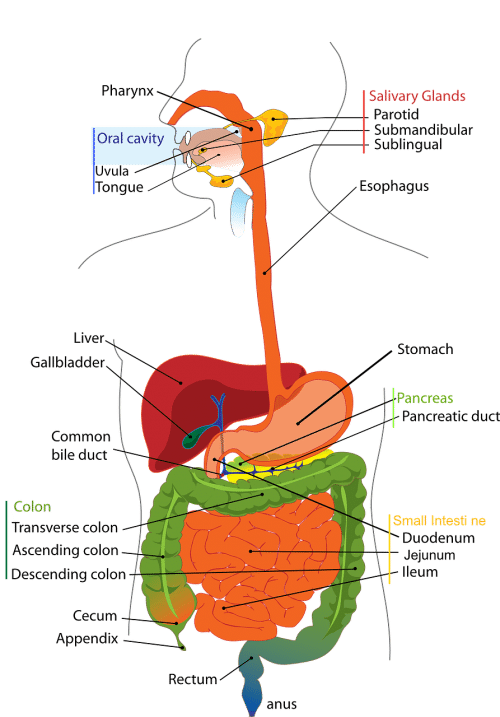For a long time, the role of cannabinoids in cancer treatment was relegated to the palliation of symptoms. From a recent announcement, it is clear that there is untapped potential in this area. Two phytocannabinoids — cannabichromene (CBC) and cannabigerol (CBG) — were shown to exhibit anti-tumor properties when tested on cells of the gastrointestinal system.
Each year, billions of dollars are poured into cancer research. While there have been significant advances in early diagnosis and treatment of cancer, it hasn’t changed the perspective of most cancer victims to whom a cancer diagnosis heralds the “beginning of the end.”
Can CBC & CBG Provide Benefits Against Gastrointestinal Tumors?
Gastrointestinal cancer refers to a group of cancers that affects the gastrointestinal tract from the esophagus to the anus. This is one of the most common types of cancers affecting both men and women. Risk factors include:
- Being male
- Tobacco use
- Obesity and a high fat diet
- Inherited gene mutation
- Advanced age
- Excessive alcohol consumption
Most gastrointestinal cancers are aggressive. Colorectal & stomach cancers are among the top three deadliest cancers. Traditional treatment may involve surgery and chemoradiation.
Israeli Study: CBC & CBG Linked to Gastrointestinal Cancer
For many years, Israel has spearheaded cannabis research with funding from different nations of the world. A recent investigation conducted by Cannabics Pharmaceuticals concluded that cannabichromene (CBC) & cannabigerol (CBG) may have a positive role to play in fighting gastrointestinal tumors. The full study was not made available.
This study, which was conducted at the company’s High Throughput Screening (HTS) facility in Israel, reported a strong correlation between the cannabinoids’ topological polar surface area, a technique used for evaluating drug permeability, and anti-cancer activity (necrotic) on human gastrointestinal cancer cells. Other cannabinoids tested did not demonstrate a similar benefit.
CBC & CBG are naturally occurring, non-intoxicating phytocannabinoids whose therapeutic effects are now beginning to emerge. CBC has been shown to have anti-inflammatory effects [1], as well as being a CB2 receptor agonist. [2] CBG has been in the limelight recently due to its striking resemblance to the medicinal cannabis poster child cannabidiol (CBD). CBG has demonstrated pain-relieving and appetite-stimulating properties.
Cannabinoid Potential in Cancer Treatment
Cannabinoids are now taking the frontline in cancer research with organizations such as Cannabics Pharmaceuticals being 100% dedicated to this course.
Dr. Yaakov Waksman, who heads research in Cannabics Pharmaceuticals, issued a statement claiming that the results of this preliminary research validated their existence and vision.
CBD & CBG may offer hope in the treatment of gastrointestinal cancer. Randomized clinical trials are needed to give clearer direction on this.
Image Source
https://pixabay.com/vectors/digestive-system-human-digestion-41529/
References
- Izzo A., et al. “Inhibitory Effect of Cannabichromene, a Major Non-Psychotropic Cannabinoid Extracted from Cannabis sativa, on Inflammation-Induced Hypermotility in Mice,” Br J Pharmacol, vol.166, no.4, 2012, pp.1444–1460. [Journal Impact Factor= 6.81; Times Cited= 70]
- Udoh M., et al. “Cannabichromene is a Cannabinoid CB2 Receptor Agonist,” Br J Pharmacol, vol.176, no.23, 2019, pp. 4537-4547. [Journal Impact Factor= 6.81; Times Cited= N/A












